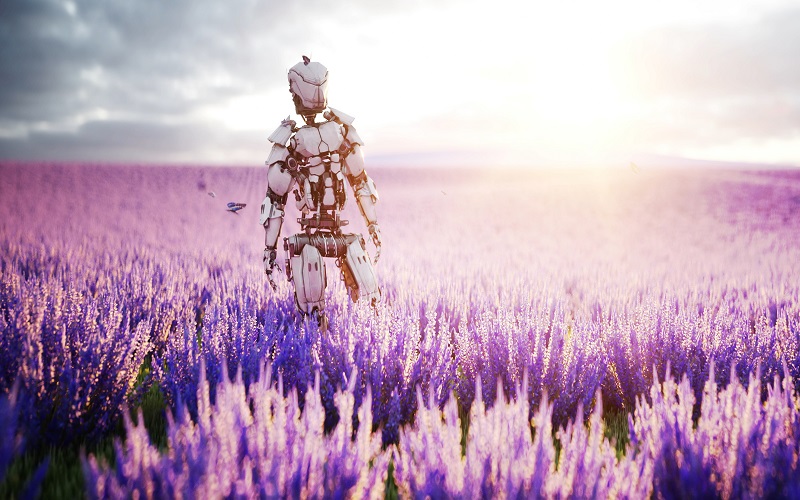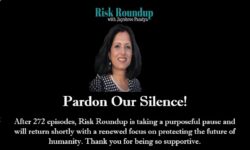Prof. (Dr.) O. Shawn Cupp, a professor at the US Army with research interests of food and agriculture security and defense support to civil authorities (DSCA) military operations based in the United States, participates in Risk Roundup to discuss COVID-19 Implications on Agriculture and Food Security.
COVID-19 Implications on Agriculture and Food Security
While the world is facing many unknowns due to the COVID-19 pandemic—much of the familiar knowns are also getting beyond our control. As a result, both lives and livelihoods are at risk from this ongoing COVID-19 pandemic as the availability and access to food are rapidly coming into question.
The shock is somewhat unusual as the ongoing COVID-19 crisis affects significant elements of both food supply and demand. As a result, there is a growing concern that the world is going to face a looming food crisis unless adequate measures are taken across nations in keeping the global food supply chains operational and sustainable. As a result, mitigating the pandemic’s impacts across the food system has become fundamental.
As the virus keeps spreading and the number of human infections keeps getting bigger, the defensive and offensive measure of each nation is tightening to prevent loss of lives and for the systems to collapse. There is no doubt that the global food system will be tested and strained in many challenging ways in the coming weeks and months.
This is mainly as empty shelves to empty fields and barns are becoming normal across nations. It is times like that this will remind us of all the importance of ensuring food security for everyone, everywhere. Perhaps there is a need to evaluate how to bring resiliency into the food and agriculture system for everyone– everywhere.
Food Supply Chain to Security
The food supply chain is a complex network that involves numerous producers, consumers, agricultural and fishery inputs, processing and storage facilities, financing, trading, transportation and marketing, and so on. Since agriculture security is tied to food security -a -a key challenge facing humanity already, it is fundamental for each nation to understand where they are in terms of security—especially when everyone is hit with COVID-19, and the systems are collapsing.
The COVID-19 pandemic has exposed critical security risks of the entire global food system with its long and complex supply chains. While the world is trying to manage the growing uncertainty which surrounds this pandemic, many producers and players in the agriculture industry seem to be wondering:
- Is the global food supply secure?
- What direct and indirect effects will the impact of COVID-19 have on a local, national, and global level?
- How will the impact of COVID-19 further impact their short term and long-term operations?
- In what ways can farmers and ranchers prepare for the ripple effects the impact of COVID-19 will create in the world economy?
Since agriculture is unyielding towards supply and demand, perhaps it is time to evaluate how to make the agriculture system detach from whims of nature, market forces, and external factors.
Health Crisis to Food Crisis
It seems that for the United States the impact of COVID-19 on agriculture will likely not be disastrous. However, the same perhaps cannot be said for many other parts of the world that are probably going to be hit hard.
Since large segments of the U. S. agriculture industry have been consolidating and vertically aligning over the past few decades, it is time to evaluate what potential security risks emerge from the growing integration trend. Not only that, it is essential to understand what is coming our way not only in the United States but across nations as the ongoing health crisis is rapidly turning into the food crisis.
Since the risk of a looming food crisis is increasing and disruptions in the food supply chains are imminent, in many parts of the world, food insecurity will be a new normal. Food supply chain dependencies will forever change. There will likely be a shift in how we buy and consume food in the coming weeks and months and will probably be here to stay. Since having adequate quantities of the strategic reserves of food will not meet the growing needs of most developing countries, perhaps it is time to innovate the entire food supply chains and markets.
Navigating the Challenges
In these uncertain times, navigating the growing biosecurity risks and challenges that have a lasting impact on agriculture and food operation while challenging needs to be effectively managed. The future of humanity depends on it. However, the question is whether we will be able to maintain security. It is time visionaries, and innovators begin to use emerging technologies to solve the problems facing the Agriculture and Food Industry Security. The time is now to evaluate the COVID-19 implications on Agriculture and Food Security.
For more, please watch the Risk Roundup Webcast or hear the Risk Roundup Podcast
About the Guest
Dr. Cupp is a faculty member of a multi-departmental teaching team instructing the Intermediate Level Education (ILE), including the ILE Core Course and the Advanced Operational Warfighting Course (AOWC). He is responsible for presentation, revision, development, and evaluation of graduate-level, force projection, and maneuver sustainment, resource planning, and force management instruction to a diverse audience of US and international field grade officers. Serves as a mentor and coaches 16 operations career field students as their Staff Group Advisor (ASGA). Educate and counsel officers in a course that develops and improves their problem solving, critical reasoning and creative thinking, leadership development, cultural awareness, and military-media relations. Curriculum, course author, and lesson author duties include A430 Characteristics of Domestic Incidents in the Advance Application Program (AAP) as part of the Homeland Security Studies Program Track V. Subject matter expert within the college for adult education, domestic threats, agroterrorism, and research in homeland security threats.
About the Host of Risk Roundup
Jayshree Pandya (née Bhatt), Ph.D., is a leading expert at the intersection of science, technology, and security and is the Founder and Chief Executive Officer of Risk Group LLC. She has been involved in a wide range of research, spanning security of and from science and technology domains. Her work is currently focused on understanding how converging technologies and their interconnectivity across cyberspace, aquaspace, geospace, and space (CAGS), as well as individuals and entities across nations: their governments, industries, organizations, and academia (NGIOA), create survival, security, and sustainability risks. This research is pursued to provide strategic security solutions for the future of humanity. From the National Science Foundation to organizations from across the United States, Europe, and Asia, Dr. Pandya is an invited speaker on emerging technologies, technology transformation, digital disruption, and strategic security risks. Her work has contributed to more than 100 publications in the areas of science and commerce. She is the author of the books, Geopolitics of Cybersecurity and The Global Age. She writes about Artificial Intelligence on Forbes.
About Risk Roundup
Risk Roundup, a global initiative launched by Risk Group, is a security risk reporting for risks emerging from existing and emerging technologies, technology convergence, and transformation happening across cyberspace, aquaspace, geospace, and space. Risk Roundup is released in both audio (Podcast) and video (Webcast) format. It is available for subscription at Risk Group Website, iTunes, Google Play, Stitcher Radio, Android, and Risk Group Professional Social Media.
About Risk Group
Risk Group is a Strategic Security Risk Research Platform and Community. Risk Group’s Strategic Security Community and Ecosystem is the first and only cross-disciplinary and collective community that is made of top scientists, security professionals, thought leaders, entrepreneurs, philanthropists, policymakers, and academic institutions from across nations collaborating to research, review, rate, and report strategic security risks to protect the future of humanity.
Copyright Risk Group LLC. All Rights Reserved





 Impact Of COVID-19 On Democracy
Impact Of COVID-19 On Democracy